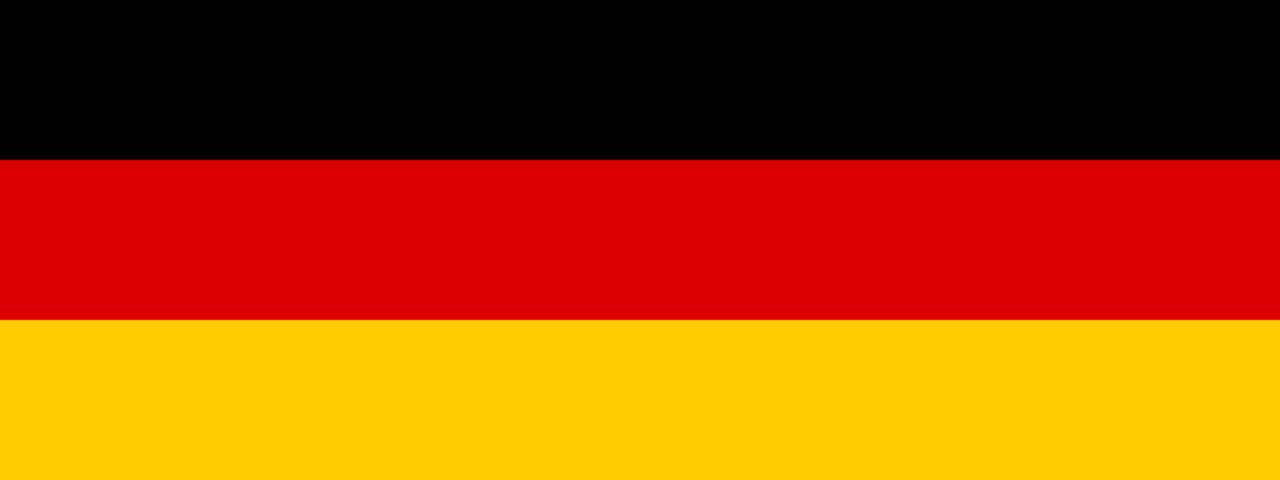
Germany lies at the heart of Europe. It is the fourth largest European country by area, with high productivity, the latest technologies and a highly skilled workforce. With the well-developed road, rail, ship and air transport you can easily reach other countries. The most important and in-demand industries in Germany are the automotive and electrical industries.
Facts
- Total population: 83.2 million
- Surface area: 357 050 km ²
- Capital city: Berlin
- Neighbouring countries: Austria, Belgium, Czech Republic, Denmark, Luxembourg, France, Netherlands, Poland, Switzerland
- Business languages: German
- Currency: Euro
- Government system: democratic parliamentary state
- Head of State: Federal President Frank-Walter Steinmeier, since March 2017
- Head of Government: German Chancellor Friedrich Merz, since May 2025
- Parliament: German Bundestag, 630 MPs elected for four years
Economy
- GDP 2023: €4,185.6 billion
- GDP per capita 2023/2024: €49,525
- Inflation rate 2023: +5.9%
- Government debt 2024 Q1: €2,461.4 billion
- Unemployment rate 10/2024: 6% (2,791,000)
- Import 2023: €1,366 billion
- Export 2023: €1,590 billion
- Ease of doing Business: World #22
- World Competitiveness Ranking 2024: World #24
- Corruption perception Index: World #9 (78/100 score; 2023)
Infrastructure
Although Germany already has a very good infrastructure compared to other countries, the infrastructure is to be expanded and improved by 2030. This is especially true for highways where metropolitan areas can be relieved.
To this end, the German government will provide almost €260 billion. In addition, existing roads and railway lines will need to be upgraded and repaired, and the rest will additionally flow into the new infrastructure.
In Germany, not only roads are important, but also seaports and airports. The most popular seaports are Hamburg and Bremen. The Port of Hamburg, with a total turnover of about 126 million tonnes in 2020, is the largest port in Germany and the third largest port in Europe with a major impact on GDP and is the hub of international container shipping.
Airports are also fundamental for the German economy and its connection to the rest of the world. The two largest German airports are Frankfurt/Main and Munich. Together with Düsseldorf and Berlin, they form an international hub.
History
The history of Germany, the path to a liberal democracy, has overcome many historical difficulties.
An important date is Martin Luther’s reform in 1517. This divided the church into two parts. The 20th century is characterized by two great world wars: the 1st World War from 1914 to 1918 and the 2nd World War from 1939 to 1945. After the 1st World War, in the Republic of Weimar, the country was characterized by high compensation due to the war, first by economic uprisings and then by the crisis, the influence of radical parties. Meanwhile, the incumbent parties could no longer agree on a joint programme and urgent decrees had to be decided.
Adolf Hitler was elected Chancellor of the Reich due to the increasing influence of radical parties, and with a gradual program the possibility was created to introduce the autocracy of Hitler and his regime. At the time, there was a strong Nazi anti-Semitism that killed 6 million Jews in concentration camps. On 8 May 1945, the Second World War and nationalism ended with the German surrender. After the end of World War II, four successful countries (France, Great Britain, the USA and the Soviet Union) divided Germany into occupation zones, the capital Berlin was independent. That was the case until 1948. in 1949, Germany was split into West Germany and the Democratic Republic of Germany (GDR).
As living conditions in the GDR were significantly worse, many people fled to the West. To avoid further loss of inhabitants, the GDR’s western border was significantly tightened from 1952 until the 1961 masonry, until it was insurmountable. In November 1989, the wall was demolished by rising protests due to living conditions in the GDR. Since 3 October 1990, Germany has officially been a country again. This day is celebrated as the “Day of German Unity”.
